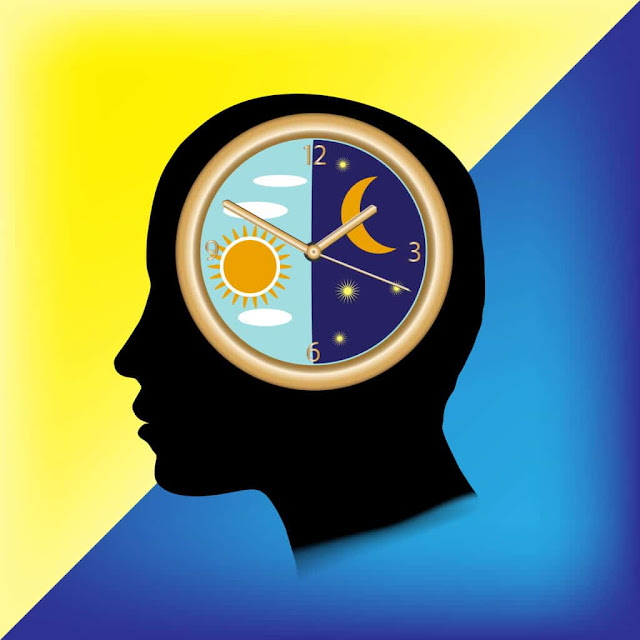FINE TUNE YOUR CIRCADIAN RYTHM WITH MY MANTRA FOR A GOOD NIGHT’S SLEEP
If someone has to speak of having a sound, relaxed sleep, then it definitely shouldn't be me. Because I hardly follow 'early to bed, early to rise' even though I preach to my patients to have 8 hours of nap every day. Are you even a doctor if you strictly follow what you advise your patients to do?! But, hey, it's not me; it's my work schedule and the innumerable emergency night calls that don't let me have what I want. But let me tell you what I do on other days and how to make your sleep peaceful, even if it's just for a few hours. Because, well, I am at least qualified to.
CIRCADIAN RHYTHM - THE BEAT OF LIFE
Have you ever wondered how you start feeling sleepy just as the broad daylight dims? Why should humans sleep at night and wake in the morning? Why do we struggle to keep our eyes open at night when demanded? That's simply because we all dance to the rhythm that chimes within us - the circadian rhythm or cycle. This internal clock in our brain controls periods of sleepiness and alertness by responding to light changes in our environment in the form of chemical changes. It has been adjusted over years of human practice, and people in whom these cycles are disturbed find it challenging to have a regular sleep pattern.
CREATE YOUR PATTERN
Since the sleep-wake cycle is more of a signal-moderated phenomenon, make sure to set your pattern right. Make sure to keep yourself up for most times of the day so your body demands and adjusts for a good rest later. People who sleep during the day and stay awake at night are tuning their body settings for the same. So, if you wish to sleep well and early at night, set it right. It could start with a tiny thing like setting an alarm, not just for waking up but also for going to sleep. Maybe you could do it with your partner so that it becomes a habit.
SEE WHAT YOU EAT AND WHEN YOU EAT
Many studies have shown that diet patterns have both positive and negative effects on the quality of sleep. People who consume mixed meal patterns like high carbohydrate, low-fat diets have shown fewer interruptions during sleep compared to low carbohydrate diets. Below are some foods rich in hormones like melatonin, tryptophan, leptin, serotonin and antioxidants that regulate sleep quality.
Fruits like kiwi ( serotonin, antioxidant), tart cherry (melatonin and phytonutrient)
Fish - omega 3 fatty acids, vitamin D, nutrients used for serotonin regulation, vitamin B 12
Milk and milk products - high melatonin, high Tryptophan, vitamin B 12
Other Fruits and vegetables - antioxidants, high fibre, low-fat content, iron and folic acid.
In contrast, beverages and products like coffee, tea, chocolates, alcohol, and nicotine negatively affect sleep.
In addition to what you eat, when you eat also plays a role in managing your sleep pattern. Make sure to finish your meal at least two hours before falling asleep to keep health concerns like GERD, which affect sleep over the long term, at bay. And don't ever try to go starving or empty stomach to bed. Not only does it worsen your sleep quality, but it also puts you at risk of gastritis and other health hazards.
LIMIT YOUR MENTAL STRAIN
Modern-day insomnia is mainly attributed to modern-day problems like overuse of electronic gadgets, more emotional stress associated with lifestyle, lack of physical activity and a lack of peaceful environment. One can work on these by engaging in meditation, sweating it out through physical exercise and limiting the usage of gadgets at least a few hours before sleep. If you want to switch that phone off or hit the flight mode to enjoy your 'me-time', do it. If you keep stressing over a serial killer on TV or a mission on PUBG, shut them right away. If you wish to have those peaceful moments before going to bed by talking it out or by meditating or doing yoga, do it.
REPEAT
So, altering your sleep-wake cycle is not as easy as composing this post. It takes work and consistency to get there. So, don't stop until you own your rhythm. Very rarely, people might require medical help when it starts affecting day-to-day life. There is no stigma in getting yourself checked and treated for troublesome insomnia if that's the only resort available when all else has failed. Ultimately, finding the cause and working on it is the most important mantra that needs to be followed for a good night's sleep.
P.S. This post is based on scientific evidence from various authentic studies and medical books.
This is a part of Blogchatter’s #BlogHop
#penbooksandscalpel








I have realized that sound sleep of atleast 5 hours makes me active and happy the next day.
ReplyDeleteI learnt something very interesting today regarding the circadian rhythm :)
ReplyDelete